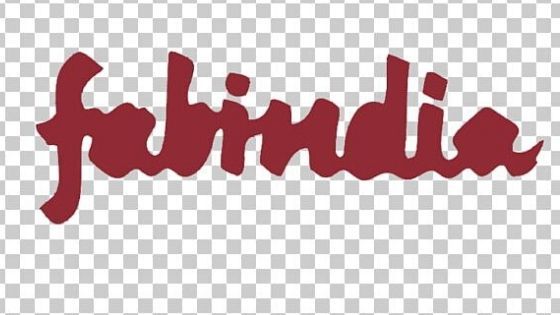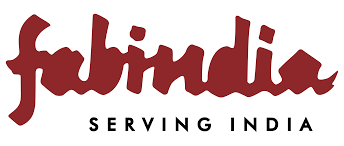
India is rich in art and culture and this richness reflects in the hand loom and handicraft products made by the Indian artisans. With the e-commerce boom, today the Indian handicraft products has found a great marketing platform. But the scenario has not been similar always. From the steep decline in demand for handicraft during the British colonial rule, to inability of the artisans to find proper market, the Indian handicraft sector has suffered a lot. But back then in 1960, John Bissell an American gentleman very well understood the potential that Indian Handicrafts has, which made him to start 'Fabindia'. Today after 60 years of its inception, Fabindia has 327 stores in 118 different cities of India, including 14 international stores. This is an article to give you a glimpse of the fabulous journey of Fabindia, that has established itself as a popular brand in India and abroad.
Company Highlights
| Comapny Name | Fabindia |
|---|---|
| Headquarter | New Delhi |
| Founder | John Bissell |
| Sector | Lifestyle & Retail |
| Founded | 1960 |
| Parent Organization | Fabindia Overseas Private Limited |
| Website | www.fabindia.com |
About Fabindia
Fabindia - Founders & Team
Fabindia - History
Fabindia - Name, Tagline & Logo
Fabindia - Growth & Revenue
Fabindia - Funding & Investors
Fabindia - Business Model
Fabindia - Competitors
Fabindia - Awards and Achievements
Fabindia - Future Plans
About Fabindia
Fabindia which claims to be the largest private platform in India for selling handicraft goods, deals in clothing, accessories, home furnishing, beauty, and organic food products. It links over 55,000 rural artisans to urban markets, that preserves the Indian traditional skill sets and promotes sustainable rural development. The Fabindia garments are handwoven and hand printed fabrics, which gives an aesthetic appeal to the customers.
The products of Fabindia are classified into fully organic, ‘in conversion’, and natural products.
In 2009, Fabindia acquired 25% stake in 'EAST' a UK based women ethnic wear retailer.
In 2013, Fabindia bought 40% stake in ' India Organic' , a Lucknow based organic food and supplement company.
In 2014, it launched its western wear brand “Fables”. The company claims to be a social enterprise as it renders employment to rural workers for their various projects. The Fabindia School, which is located in Rajasthan is an eminent initiative taken by the company. It was started in the year 1992 and aims to provide quality education.
Also Read: Top 12 Fashion Startups in 2020
Fabindia - Founders & Team
Fabindia was founded by John Bissell in the year 1960. A resident of Hartford (USA), John came to India in 1958, as he was given a 2 year grant from the Ford Foundation, whereby he required to guide and advise the Central Cottage Industries Corporation (run by Government of India) in making goods for export. John had a deep love for India as he grew up hearing stories about India from his father who was in India during World war II. During his stay in India his love for India grew further. Besides during his work in India, John realized that Indian textile industry has a huge growth potential, so after the end of his project with Ford Foundation, John decided to stay back in India and start Fabindia. Fabindia was started as an export company for exporting home furnishing. In 1993 John suffered from a heart attack which made his son William Bissell take over the management of the company. John Bissell passed away in 1998.
William Bissell was the managing director of Fabindia until 2018, and later on, became the chairman of the company. He graduated in 1988 from Wesleyan University in the United States. Bissell has made various investments across sectors, some of them are ‘Wow!Momo’ and Juggernaut Books. Presently, Viney Singh is the CEO of Fabindia. The company has around 2000 employees along with 55,000 rural workers.
The main directors of Fabindia are Madhukar Khera, Monsoon Bissell, Vijai Kumar Kapoor, William Sean Sovak, Charu Sharma, Monika Uppal, Prakash Parthasarathy, Rahul Garg, TekkethalakalKurienKurien, Vinita Bali, and Yoav Lev. Yoav Lev is recently appointed director in August 2018. Fabindia is associated with 29 different companies through its directors.
Fabindia - History
Fabindia was started as an exporter of home furnishing goods. Fabindia founder John Bissell started the business from his flat itself, in Golf Links ( New Delhi). And the company was incorporated as 'Fabindia Inc' in Canton (USA). Bissell traveled through many villages and towns in India in search of artisans and craftsman who would produce goods for the company, and started exporting the same to USA. However, Fabindia's entry into retailing was actually a result of a crisis. During 1975-1976, when emergency was declared in India by the then Prime Minister Indira Gandhi, a rule was passed where by commercial establishments were barred from operating in residential premises. At that time Fabindia had a secondary premise, which was a residential house in Mathura Road, and owing to the new regulation, John could no longer operate from there. To tackle this, John opened Fabindia's first retail store in Greater Kailash ( New Delhi), and this was just the beginning of a new journey! However, till 1994, the company did not open any new retail store, after which gradually new stores were open in different parts of the country and abroad.
Fabindia - Name, Tagline & Logo
The name ‘Fabindia’ depicts that the company retails solely Indian fabrics and other Indian products. The tagline of Fabindia was “Celebrate India” previously and now it is changed to “Serving India”, highlighting the company's focus on the welfare of the Indian artisans and on making traditional Indian handicraft products a part of the daily life of people.

Also Read: Tisharth - The Journey of a Humble Startup to Paris Fashion Week
Fabindia - Growth & Revenue
The Flagship store of Fabindia was established at Greater Kailash in the year 1976, which was the only retail store till 1994. It grew up to 141 stores by the year 2011. Now the company has 327 stores in 118 different cities of India, including 14 international stores. It has around 2000 employees, including contracted staff. The company offers equal job opportunities for men and women. The operating revenue is around INR 500 Cr as of the fiscal year 2019, with an increase of 14.49% in the net worth and a raise of 11.66% in EBITDA from the previous year.
Fabindia - Funding & Investors
Fabindia founder John Bissell's grandmother had left him $20,000 as a legacy before her death, and this very money was used by John as the initial capital to start his business.
As for funding, Fabindia has raised a total of $14.6 M funding with its latest Private Equity round in May 2019 from Lighthouse Funds. The company also got private equity investments from Ajim Premji's Premji Invest. L Capital also had 8% stake in Fabindia, which it sold to Premji Invest in 2016.
In 2007, Fabindia also sold 6% stake for approximately $11 million to Wolfensohn Capital Partners, a private equity firm founded by former World Bank president James Wolfensohn.
Fabindia - Business Model
Fabindia focuses on Direct Supply Chain Management, which also form the base of its business model. The company not only sources its products directly from the artisans but has also made those artisans shareholders of the company. As found in some case studies, no goods are returned to the suppliers even if the goods are not exactly as per the brief given to the artisans. Over the years, the company has been successful in creating a goodwill among the rural artisans, and also arrange for micro finance of these artisans. Interestingly, as found in the said case study even not all customer feedback is passed down to the artisans in order to ensure that the artisans skeep the goods authentic.
Fabindia introduced the SRC (supply-region companies) model. As per reports, till mid 2009, there were more than 12 Fabindia SRCs operational in various regions. SRCs were community owned enterprises that were formed in collaboration with artisans. SRCs maintained the coordination between the company (Fabindia) and the artisans of different regions. All the Fabindia artisans that worked under any specific SRC, collectively owned 26% of the equity of that particular SRC. 49% of the equity was held by Artisans Micro Finance ( managed by Fabindia), while the rest was held by employees and private investors. Besides SRCs also provided access to certain common facilities, artisan training, ensured that standard systems of production and delivery were followed in the region and consolidated supplies from the clusters falling under the SRC.
However, according to some reports, the SRC model has now been diluted and the company is focusing more on cluster development.
Fabindia - Competitors
The top competitors of Fabindia are GoodEarth, Stylebaaj, Cotton Emporium, Khadi Gram Udyog, Patanjali Ayurved, and Cbazaar. Though competing with leading retailers in the country, Fabindia stands ahead with its largest network of exceptional artisans.
Fabindia - Awards and Achievements
2011
- ‘Outstanding Achievement in Promotion of Cotton by a Brand’ Award – Cotton Council of India.
- Rated amongst “India’s best companies to work for” – Economic Times.
2010
- One of the Most Innovative Models – Recognized by Monitor- Business Today survey led across industries.
- Excellence in Supply Chain Management – TIE Retail Innovation Award.
2009
- Featured as an example of Game-Changers by Business Week magazine.
2008
- Designated as one of India’s top marketers by Business Today magazine.
2004
- ‘Best Retail Brand’ Award – Economic Times
Also Read: FOReT - Introducing Eco-friendly Fashion Accessories
Fabindia - Future Plans
Fabindia plans to expand its business by implanting 40 new retail stores in India by 2020. The company also aims to intensify its sector of organic products by endorsing its potential merits, and targets to develop the international stores in near future.
The company's vision is to rejoice the rich cultural heritage of India all over the world through its various products, while working for the upliftment of the community of farmers, designers, artisans who are working with Fabindia.
“In addition to making profits, our aims are constant development of new hand-woven products, a fair, equitable and helpful relationship with our producers, and the maintenance of quality on which our reputation rests,” says William Bissell, MD of Fabindia.
Link : https://startuptalky.com/fabindia-success-story/
Author :- Chayanika Goswami
June 13, 2020 at 09:00AM
StartupTalky - Your Entrepreneurial Journey Starts Here!
